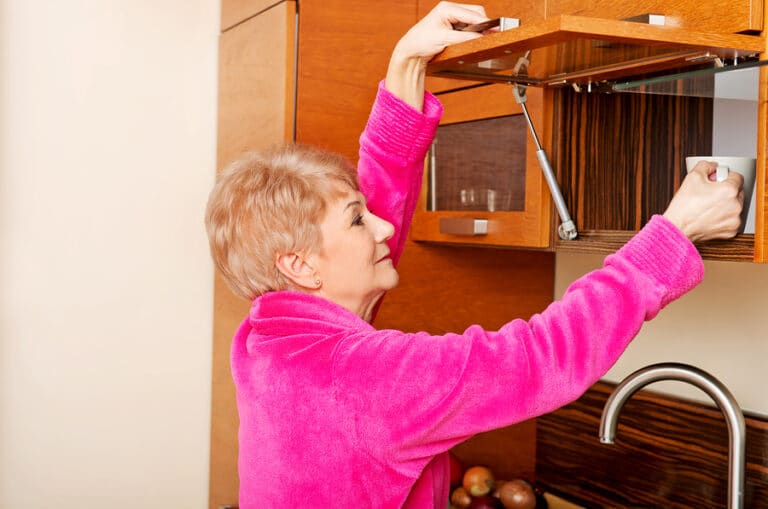Preparing meals is something that Ethel had been doing most of her life. Even when she was a young girl, not even 10, she was helping her mother and grandmother make breakfast, lunch, and dinner for her younger siblings. She loved cooking. It was one of her favorite past times and whether it was a wonderful meal or an exquisite dessert, she felt most comfortable doing these wonderful tasks.
In her 80s, though, with her strength in decline, the simple act of cooking was becoming not just more complicated, but less safe. She spent less and less time in the kitchen, and the time she did spend there, she was worried about any number of things.
She didn’t admit any of this to her oldest daughter who would stop by and visit a few times a week, but Cheryl could pick up on some of the signs that her mother wasn’t quite herself. Even though Cheryl asked Ethel plenty of questions, Ethel kept things close to her chest, so to speak.
Eventually, Cheryl realized what was happening.

She put the pieces together and finally understood her mother was concerned about her own safety, just as Cheryl was. Yet, Cheryl understood so well how big a part of her life cooking had become. It wasn’t just something she did for herself, her family, and others; it was a part of her. She loved it.
That’s when Cheryl sat down to talk about some simple things Ethel could do to keep her safe or while preparing meals.
First, she could pull things down from the upper cabinets.
Keeping things in reach was a better design for somebody with diminishing strength. Instead of having to climb up on a chair or stepladder, which was exceedingly uncomfortable for Ethel because she didn’t feel steady on her feet, she could keep the spices, dishes, and other baking necessities on the counter.
It didn’t look great, but as Cheryl pointed out, “Would you rather be safe or have a great-looking counter top?”
Second, Cheryl recommended she pay attention to what she wore while cooking.
Long, loose sleeves, loose sweaters, and other types of fabrics that could get in the way, touch the stove top, or even get caught on different handles and hooks could all be potential hazards. Yet, these were some of the clothing items Ethel commonly wore.
If she paid closer attention to what she was wearing, it would help to improve her safety while in the kitchen.
Finally, Cheryl recommended help.
By hiring a home care aide during the evening, at least, Ethel could have somebody helping her prepare meals. It didn’t have to be every day, but a few times a week could be more than enough to prepare meals to keep her satisfied and healthy each week.
If you or an aging loved one are considering hiring Home Care Anderson, SC, contact Heart of the Carolinas Home Care at 864-991-3116. Providing Home Care Services in Greenville, Simpsonville, Greer, Anderson, Spartanburg, Mauldin, Seneca, Laurens, Charleston, Columbia and the surrounding areas.
- Is it Possible to Prevent Family Caregiver Burnout? - April 25, 2025
- Home Care Assistance Helps Seniors After A Fall - April 9, 2025
- How Home Care Supports Seniors Who Are Hard of Hearing - March 28, 2025

